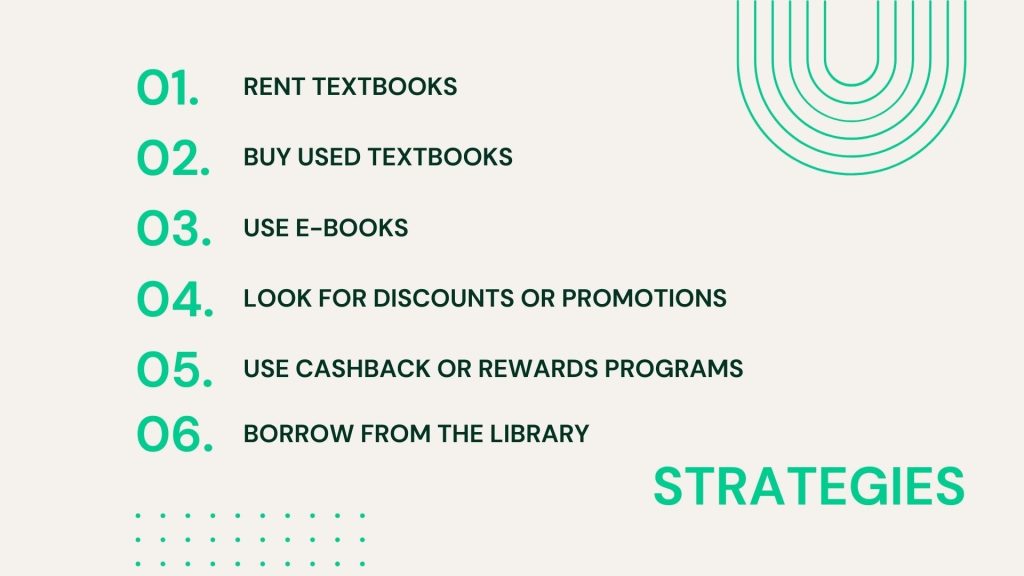Most scholarships focus on covering tuition, room and board, and fees. While these tend to be the largest expenses, many students overlook the cost of purchasing textbooks, which can add up to several thousands of dollars over the course of their college education.
This article will explore the best book scholarships to help you pay for college textbooks.
Scholarship Institute is dedicated to handling all things scholarship so you can focus on your studies. Check out all our best scholarship awards so you can graduate debt-free!

Scholarships for Textbooks and Course Materials
BookScouter Quarterly Book Scholarship
Link: Book Scouter Scholarship
Summary: Quarterly essay or video contest awarding funds specifically for textbooks.
Eligibility: Currently enrolled at an accredited college or university, submit a short video and questionnaire.
Award: $500 per quarter.
Key dates: Q3 2025 deadline is September 30, 2025 and the award is issued in October 2025
University of Dayton Textbook Scholarship Program
Link: University of Dayton Textbook Scholarship
Summary: Incoming undergraduates who visit campus and file the FAFSA by Feb 1 can use funds toward required course materials through the UD Bookstore.
Eligibility: Incoming first-year students who apply, visit campus, and file FAFSA by February 1. Transfer, UD Sinclair Academy, and international students have pathways to qualify.
Award: Up to $500 per semester, typically for up to eight semesters.
Key notes: February 1 of the incoming student’s high school senior year.
Textbook Grants (Nonprofit)
Link: Textbook Grants Award
Summary: Essay-based grants that help low-income and under-resourced students pay for textbooks and course materials.
Eligibility: Low-income or underprivileged students enrolled in college or skilled trades programs.
Award: Varies based on need.
Key dates: Quarterly deadlines on April 15, July 15, September 15, and December 15.
Priority Partners $1,000 Book Scholarships
Link: Priority Partners Book Scholarship
Summary: Three book scholarships for Priority Partners members and their immediate families to purchase course books.
Eligibility: Current Priority Partners enrollees or their immediate family members. Funds must be used for course books or study materials. Does not affect Medicaid eligibility.
Award: Three awards of $1,000.
Key dates: June 15, 2025 deadline. Winners notified in September.
Barnes and Noble Book Scholarship (Florida International University)
Link: Barnes and Noble Book Scholarship
Summary: Supports FIU students with costs for books and educational materials for Fall 2025.
Eligibility: Minimum 2.0 GPA, U.S. citizen, lawful permanent resident, eligible non-citizen, or international student with F-1 visa. Priority for students in the Panther Book Pack.
Award: $300.
Key dates: August 15, 2025 deadline.
Strategies to Save Money on Textbooks

Textbooks can be a significant expense for students, but there are numerous strategies to save money without sacrificing quality or access to learning materials. Here are five practical options:
1. Rent Textbooks
Renting textbooks is a cost-effective solution, especially for courses that don’t require keeping the book for future reference. Rental services like Chegg, Amazon, or campus bookstores often provide options at a fraction of the cost of purchasing a new book. This strategy is particularly useful for general education courses or subjects you don’t plan to revisit.
Many rental platforms offer flexible return policies, including semester-long rentals or extensions for finals. However, be mindful of the condition of the book upon return to avoid extra fees. Always check for supplemental materials like online access codes, as these are not typically included with rentals.
2. Buy Used Textbooks
Purchasing used textbooks can save you up to 50% or more compared to buying new ones. Options include campus bookstores, secondhand shops, and online marketplaces like ThriftBooks or eBay. Look for local student networks or Facebook groups where peers sell their books at competitive prices.
Before purchasing, ensure the used copy is the correct edition for your class, as some courses require specific versions. If the book has notes or highlights, these might even offer helpful insights. To save even more, consider reselling your used textbooks at the end of the semester to recoup some of your investment.
3. Use E-books
Digital versions of textbooks are often significantly cheaper than their print counterparts. Platforms like VitalSource, Kindle, and Google Play Books provide a wide selection of e-books, many with built-in tools like highlighting, bookmarking, and note-taking. E-books also eliminate the need for physical storage, allowing you to carry your entire library on a tablet or laptop.
Furthermore, many e-books have adjustable font sizes and text-to-speech features, making them accessible for different learning preferences. Before purchasing, check for rental options or free trial periods to see if the format works for you.
4. Look for Discounts Or Promotions
Many retailers and publishers offer discounts or promotional codes, especially at the start of a new semester. Sign up for email newsletters or follow textbook providers on social media to stay informed about sales. Students often qualify for special discounts through programs like UNiDAYS or Student Beans.
Inclusive access programs offered by schools or publishers can also provide digital course materials at a reduced rate, bundled into tuition fees. Don’t forget to compare prices across multiple retailers, as some stores price match or offer student-specific promotions.
5. Use Cashback or Rewards Programs
Leverage cashback or rewards programs when buying textbooks to save money over time. Platforms like Rakuten and Honey offer cashback deals on purchases from major retailers, while some credit card reward systems provide points for every dollar spent.
These points can later be redeemed for discounts or gift cards. Check if your school bookstore participates in such programs or offers loyalty rewards. Over a semester, consistently using these programs can lead to significant savings, reducing the financial burden of textbook expenses.
6. Borrow From the Library
Libraries are a cost-free way to access textbooks. Many campus libraries keep course materials on reserve, allowing students to borrow them for short periods to complete assignments or study. While these loans are often limited to a few hours or days, they’re perfect for accessing high-cost books without purchasing.
Public libraries also offer access to textbooks or can connect you to interlibrary loan services for wider options. Digital platforms like Open Library and Project Gutenberg provide free access to e-textbooks and older editions. 13% of professors in the US now require the use of Open Education Resources (OER) for their students.

Ari Moriah
Ari's passion for education and student support forms the foundation of her contributions to Scholarship Institute, where she writes about finding scholarships and funding opportunities. With a strong commitment to helping students, Ari leverages her academic expertise in history and philosophy to guide them in finding resources for their education. She earned a B.A. from Pacific University, where she focused on Early American History and Late Antiquity/Early Medieval Greco-Roman Europe, complemented by a minor in Philosophy. As a writer, Ari draws on her research and educational background to inspire and assist students in achieving academic success.






